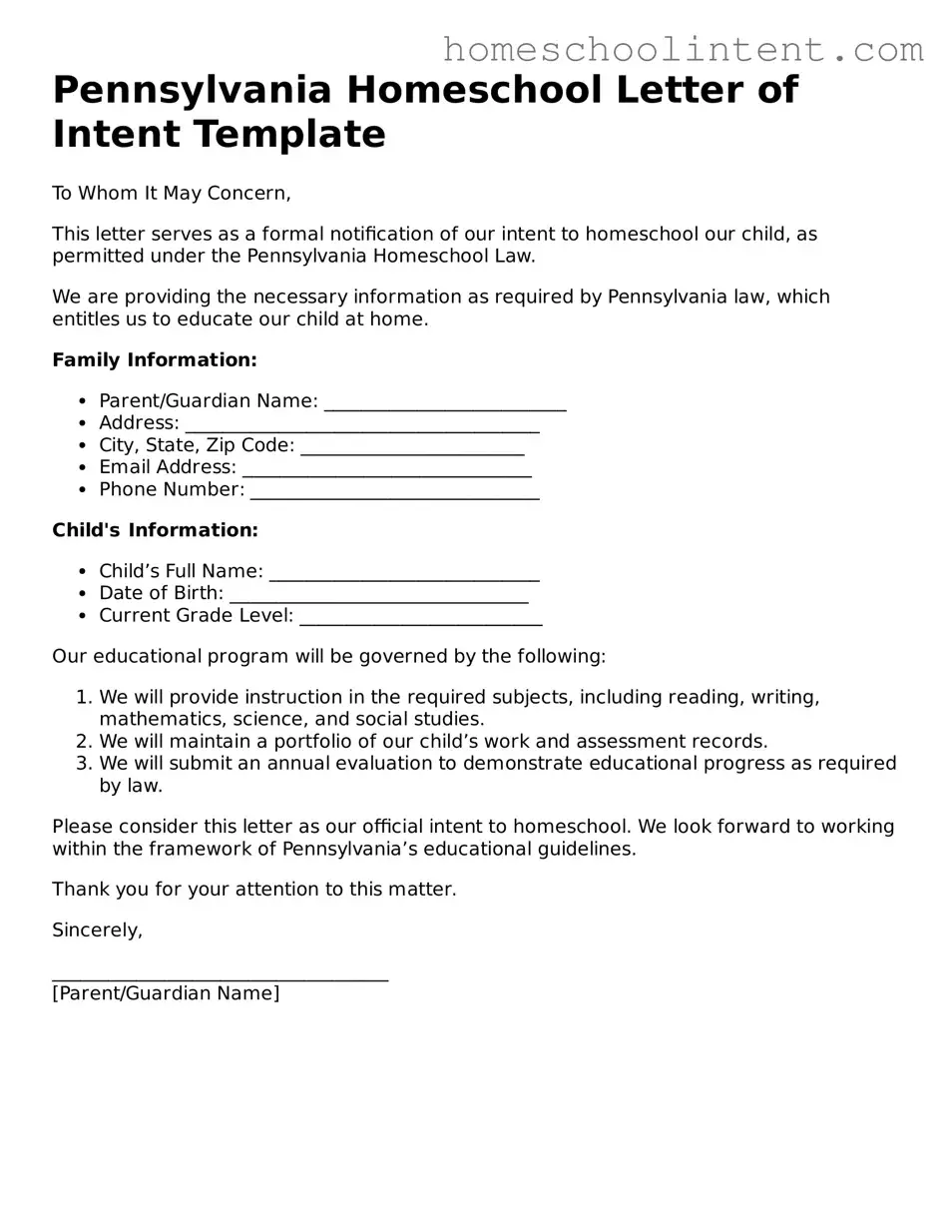Documents used along the form
When families decide to homeschool in Pennsylvania, submitting the Homeschool Letter of Intent is just the first step. Several other forms and documents may be required to ensure compliance with state regulations and to facilitate a smooth homeschooling experience. Below is a list of commonly used documents that accompany the Letter of Intent.
- Educational Objectives Form: This document outlines the educational goals for the child. It details the subjects to be taught and the methods of instruction planned for the school year.
- Portfolio Requirements: A portfolio is a collection of the student's work throughout the year. It includes samples of assignments, tests, and projects to demonstrate progress and learning.
- Annual Assessment Form: At the end of each school year, an assessment of the student’s progress must be conducted. This form documents the results, which may include standardized test scores or evaluations by a qualified evaluator.
- Attendance Record: Keeping a record of attendance is essential. This document tracks the days the student is engaged in learning activities, ensuring compliance with state attendance requirements.
- Curriculum Plan: A detailed plan of the curriculum to be used throughout the year is often required. It should outline the subjects, materials, and resources that will be utilized in the homeschooling process.
- Health and Safety Records: Some families may need to provide documentation related to health and safety, such as immunization records or health assessments, depending on local regulations.
These documents not only help fulfill legal requirements but also support the educational journey of the student. By preparing and maintaining these records, families can ensure a successful and organized homeschooling experience in Pennsylvania.
